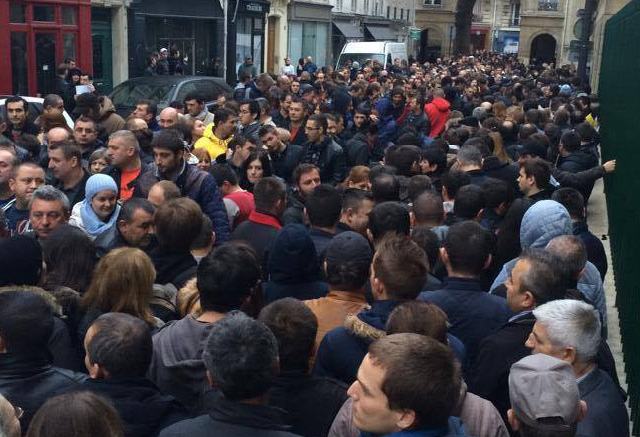The Voting System in the Limelight
The difficulties in the voting process in November's election still have echoes in Romania.

Corina Cristea, 12.12.2014, 13:25
The images of thousands of people queuing up in front of polling stations abroad in order to cast their votes in the early November’s first round of the presidential ballot in Romania made the headlines for weeks on end in the Romanian media. Despite the repeated warnings coming from the Diaspora, the situation remained unchanged two weeks later in the second ballot.
The Romanian officials in charge of organizing the ballot took measures to improve the voting process, measures which nevertheless turned out to be ineffective. Two Foreign Ministers resigned against the backdrop of the ensuing crisis, while the Social-Democrat Prime Minister Victor Ponta said he had paid a political price by losing the elections to his Christian-Liberal opponent Klaus Iohannis. But this is just the tip of the iceberg.
On November 18, the General Prosecutor’s Office launched a criminal investigation into alleged cases of abuse of office, actionable negligence, and knowingly interfering with the voting process. The allegations are founded on complaints filed by Romanians in the Diaspora who could not cast their votes, despite waiting for hours on end in line. Subsequently, the case was referred to and taken over by the National Anti-Corruption Directorate, since the aforementioned offences are actionable under the law on preventing, identifying and punishing acts of corruption.
Under the Romanian Criminal Code, any restriction of the right to elect or be elected is punishable by 6 months to three years in prison. One of the main points in the investigation is the question of whether the authorities could have opened additional polling centers abroad and whether the legal framework allowed them to do so. Beyond the judicial technicalities involved, the irregularities reported in the second ballot have rekindled the debate on the voting system, with Romanians abroad voicing the need for coming up with enhanced alternatives. Radu Carp is a professor at the School of Political Sciences with the University of Bucharest.
Radu Carp: “There have been two draft laws on postal voting. The first was initiated by the Liberal-Democratic Party in 2011. It was adopted by the Senate and sent to the Chamber of Deputies, where it has been sitting on the table for nearly 2 years. It was rejected in March 2013 by the current Social-Democratic Government. The second bill was initiated by four MPs, and the Senate dismissed it on February 25, 2014”.
Another draft law on postal voting by the Romanian voters living or residing aboard has been rejected by the Romanian MPs this very week.
So far there has been no debate about postal voting, about its advantages or disadvantages. Accordingly, no piece of legislation can be adopted, MEP Victor Bostinaru told us. On the other hand, several EU Member States have not introduced or oppose postal voting. There are however some 4 models at EU level which Romania should look at before making a decision. Victor Bostinaru:
Victor Bostinaru: “One model is the compulsory vote for all citizens. Just imagine the entire Greek Diaspora having to come back home in order to vote. Greek citizens can only cast their votes in Greece. The issue with this model is that it is very restrictive. The second model is to have lists on which people residing in other countries can sign up. They have to sign up on these lists approximately six months before an election in order to be able to vote. By this they express their intention to vote, stipulate their current address and the polling station where they want to vote”.
Only those citizens who have put their names on this list will be able to cast their votes on the election day. A third solution would be e-voting, Victor Bostinaru also told us.
Victor Bostinaru: “E-voting is an easy, less costly solution, but it should equally reflect the political consensus of all factions in the Romanian Parliament to prevent any future disputes and to guarantee that all parties agree to the technical solutions to prevent fraud. Finally, there’s also the postal voting alternative, which is currently being used in Italy for instance. In that case, however, there was a substantial debate on this matter and all political parties agree, to a certain extent, that this is the most acceptable solution”.
Romania must urgently come up with a reasonable, if not ideal, solution, because setting up polling stations for the country’s 3 million citizens living abroad is virtually impossible, Prime Minister Victor Ponta has said.






























